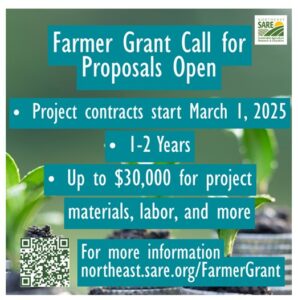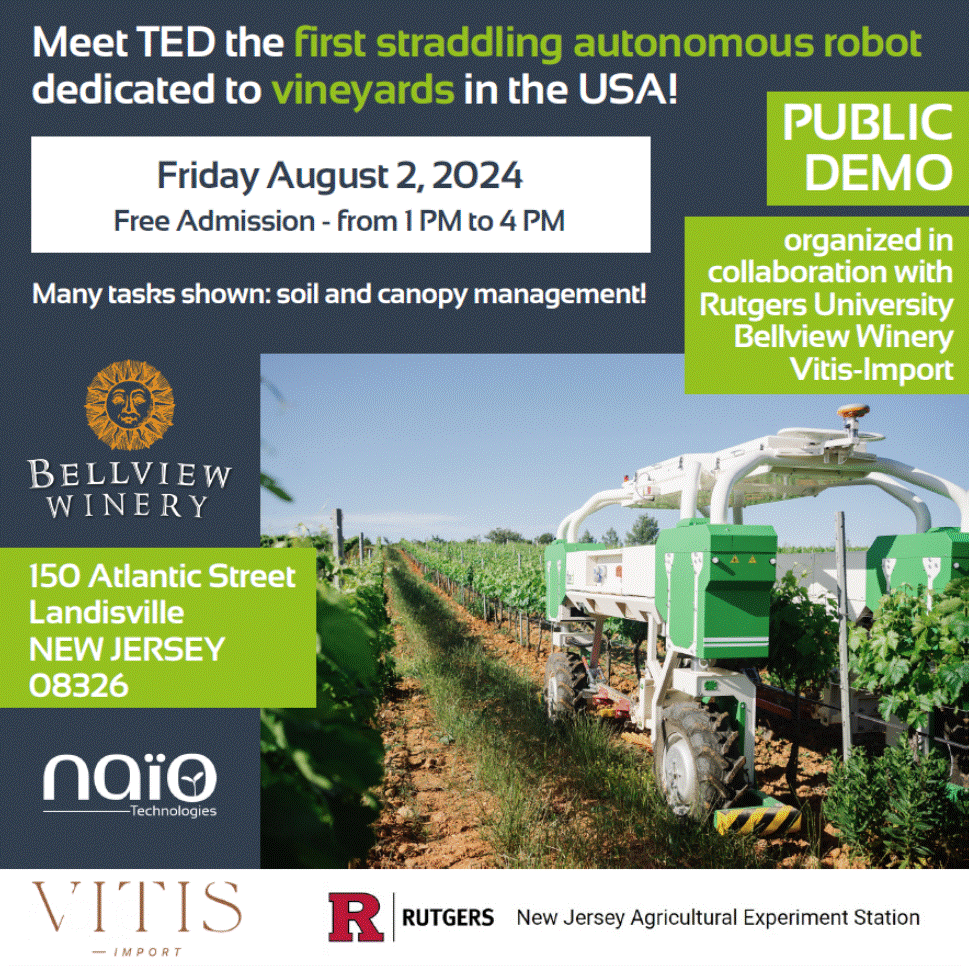As New Jersey continues to experience record low precipitation levels since September, the state Department of Environmental Protection has declared a drought warning throughout the state. It is important to note that the drought warning does not call for any mandatory water use restrictions or bans. However, if the drought conditions worsen, the state may implement stricter measures to prevent further losses.
We have received many questions from growers, most who have completed harvesting for the season, on whether plants should still be receiving irrigation. Our recommendation is to continue to irrigate plants until they defoliate. For perennial fruit crops, in the fall months flower buds are forming for the next year’s crop. The leaves that remain on the tree are actively working to photosynthesize, converting light into energy the plant needs to grow.
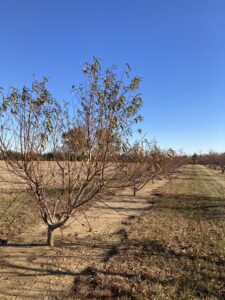 Once leaves begin to turn yellow, brown, and drop off, you can stop supplemental watering. However, if you are in a prolonged drought, as we are currently, there are some factors to consider. For perennial crops that overwinter, severe drought can compromise their ability to store sufficient reserves, which can lead to reduced vigor and potential losses during the winter. It can be the case that during periods of drought, plants may invest more energy into developing deeper root systems; however, over a prolonged period of time, persistent stresses can hinder root development, which can negatively impact water intake and nutrient availability. Additionally, whereas hydrated soils can buffer the penetration of freezing temperatures through the soil surface, dry soils do not offer the same protection, and freezing temperatures can penetrate deeper.
Once leaves begin to turn yellow, brown, and drop off, you can stop supplemental watering. However, if you are in a prolonged drought, as we are currently, there are some factors to consider. For perennial crops that overwinter, severe drought can compromise their ability to store sufficient reserves, which can lead to reduced vigor and potential losses during the winter. It can be the case that during periods of drought, plants may invest more energy into developing deeper root systems; however, over a prolonged period of time, persistent stresses can hinder root development, which can negatively impact water intake and nutrient availability. Additionally, whereas hydrated soils can buffer the penetration of freezing temperatures through the soil surface, dry soils do not offer the same protection, and freezing temperatures can penetrate deeper.
There are several strategies that can be adopted to mitigate the impact of drought on fruit crops.
- A proper irrigation schedule that includes supplemental watering during growth stages can help alleviate drought impacts and stress. When possible irrigate trees through leaf drop, and avoid irrigation on warm days (60°F and higher).
- Mulch can be applied around plants to help conserve soil moisture and reduce evaporation.
- Soil sensors equipped with data loggers can be deployed in the field to measure soil moisture and water stress and report measurements to a computer or mobile device.
- Regularly monitoring your crop for signs of drought stress including wilting, leaf curling and discoloration, and reduced growth, is critical for timely intervention and applying appropriate measures.
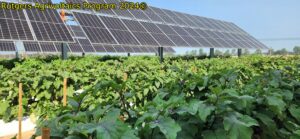
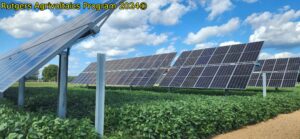
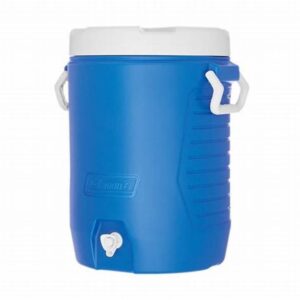 Protecting yourself and other workers from heat stress may involve purchasing some supplies for your farm operation. Some suggestions for items that may be used to “Beat the Heat” include water coolers, shade structures, fans for air movement in packing facilities, head coverings, sunscreen, and other things to help make a person cooler and more comfortable when working during high temperatures and/or in intense sunlight. Also, some companies listed also offer weather measuring devices to monitor environmental conditions for considering heat stress management decisions.
Protecting yourself and other workers from heat stress may involve purchasing some supplies for your farm operation. Some suggestions for items that may be used to “Beat the Heat” include water coolers, shade structures, fans for air movement in packing facilities, head coverings, sunscreen, and other things to help make a person cooler and more comfortable when working during high temperatures and/or in intense sunlight. Also, some companies listed also offer weather measuring devices to monitor environmental conditions for considering heat stress management decisions. 